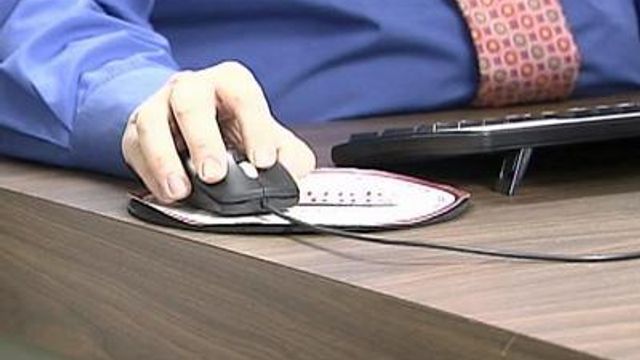Local News
N.C. lawmakers would consider changes to ID theft law
State lawmakers said Tuesday they would consider changing a law that allows documents be posted online without redacting information that could lead to identity theft.
Posted — UpdatedRALEIGH, N.C. — State lawmakers said Tuesday they would consider changing a law that allows documents be posted online without redacting information that could lead to identity theft.
The North Carolina Identity Theft Protection Act of 2005 was passed to protect consumers' personal information, such as Social Security numbers or bank account numbers, on public documents.
The law does not allow banks to put personal numbers on housing documents anymore, but it also does not require registers of deeds and clerk of courts to redact that type of information on public documents filed before the law went into effect.
Citizens can request that their information be redacted from documents posted on the Internet, but it still exists on the hard copies of the documents, to which anyone has access.
Counties cannot remove that information without a formal request.
"Clearly, there is still a problem out there," said Rep. Grier Martin, D-Wake, who co-sponsored the 2005 law.
Martin says that in light of recent concerns, he would support a review of the law to determine if changes are necessary.
Johnston County's Register of Deeds, Craig Olive, is demanding change. He has 22,000 online records with personal information, and he says software could redact it all at once.
If that is the case, Rep. Margaret Dickson, D-Cumberland, said, the 2005 legislation would be worth a second look.
Still, those close to the issue say other counties have complained about the manpower and money that would take and whether the software could even be accurate.
"They should just take it offline," said Michael, a Wake County citizen who asked that his last name not be revealed. He was alarmed to find his Social Security number in housing documents posted online.
"If they can't guarantee the safeness of it, they shouldn't have it on there and force everybody individually to go looking for it and know who to ask to take it off," Michael said.
The 2005 law did take several steps to protect consumers by allowing them to put a freeze on their credit reports. It also requires businesses to notify customers if there's a security breach. Businesses must also destroy records that contain personal information before throwing them out.
• Credits
Copyright 2024 by Capitol Broadcasting Company. All rights reserved. This material may not be published, broadcast, rewritten or redistributed.






